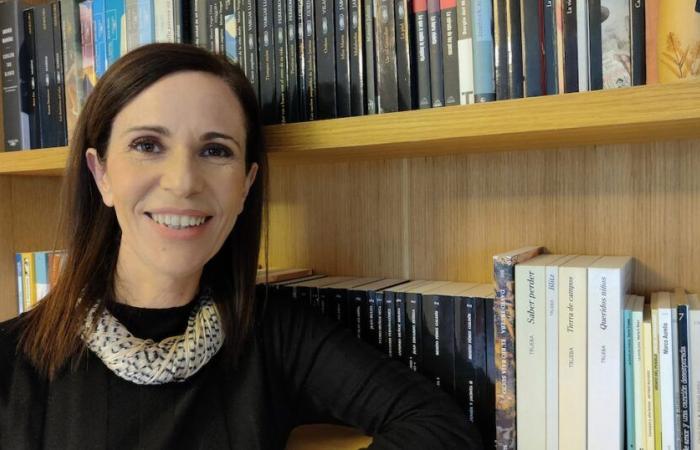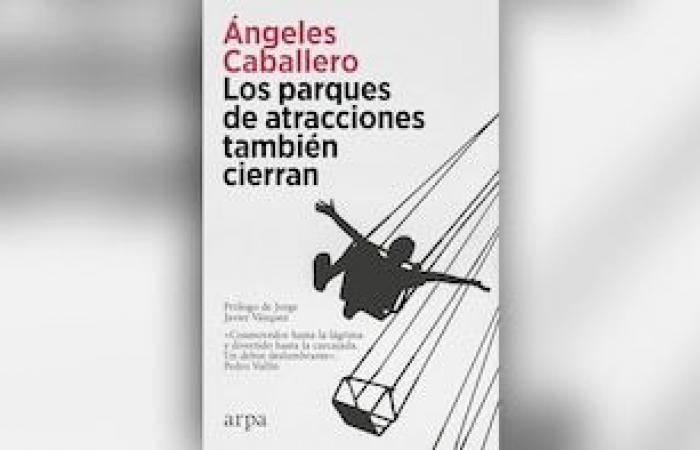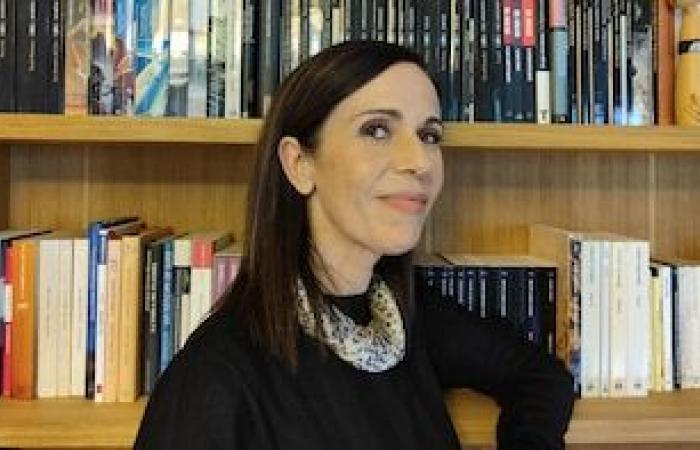“My mother started drinking so as not to stay alone”says Ángeles Caballero, without lowering his voice. He is sitting at the Buenos Aires hotel bar in which he is housed. The Spanish journalist and writer traveled to Buenos Aires to present at the Book Fair “The attraction parks also close”, her first book in which she reveals secrets of her family and how was the care of her parents in old age. “It’s all 100% real,” he says at the beginning of the interview with Infobae.
“In my family, having high alcohol tolerance was like being a movie star”laugh with an irony that barely disguises the wound of memories. Everything was celebrated, everything was drowning, everything was forgotten with alcohol. But there was a rule: the secrets were buried and never appointed. Until the text of Angels arrived.
For years, Angels didn’t suspect anything. Or did not want to suspect. A beer at lunchtime, a glass of wine in the desktop, and then follow life as if nothing. “It was social drinking room”he says now. Until one day, at nine in the morning, his mother was already smelly of alcohol. It was a brutal awakening, impossible to hide. “It began to put together pieces, like who discovers an infidelity: everything you did not understand makes sense”.
In the center of that network of silences was Manuel, his father. A man who assumed his wife’s disease as a personal penance. “My father took him like a cross. He never wanted to admit it, not even in front of us”Remember Angels. Protecting her, protecting them all, was her secret mission. But the deterioration advanced: forgetfulness, inconsistencies, calls that did not attend, excuses that did not resist the slightest analysis.
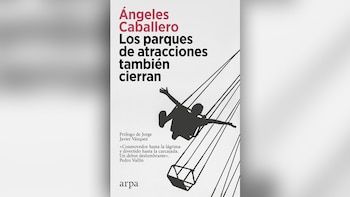
The collapse was slow but inevitable. Until one day in the hospital, while his mother delirked for the withdrawal syndrome, the doctors raised two paths: take her home and control the doses of alcohol, or intern it in a residence. Angeles chose the second option with a coldness that is still strange today. “I lowered the clinic’s stairs like an android”says. There were no tears, there were no immediate blame. Only the certainty that, if he did not, his whole life would go down.
He found a place in a private residence, the only one available at that time. when his mother received the medical discharge, instead of returning to the usual house, he went up to a car and left for his new residence. “It was the most rational and cruelest decision I took in my life”It confesses angels, without seeking indulgence. He knows that there was no other way out, but that does not relieve the wound that opens every time he relives that day.
Before that moment, Ángeles entered a kind of Hamster wheel, between the diseases of his father and his mother. Around hospitals, train and subway hours, radio programs, articles for the newspaper, intensive care and improvised dinners between serum tubes. Own life became a parenthesis, an interval between two emergencies. “I was so involved in the routine that I had no time to think about what I felt.”says. But the body, always wiser, soon passed the bill. “I became the mother of my parents.” This is defined by the writer.
Sometimes, when he left the hospitals at dawn, sarcasm was allowed as lifeguard. “I wondered what shit this life was. Shouldn’t I be in a awards ceremony, at a party? And then I laughed at myself, because real life was that: trains, cold and hospitals”. Although humor sustained it in public, inside he felt that he wasted the most valuable time of his life. “I had many years with my parents”admits. And it is not a light phrase lightly: it is the raw pain of those who gave everything to empty.
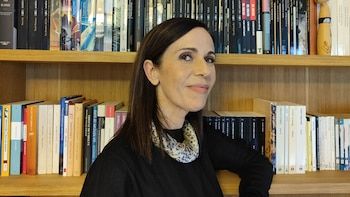
The money, admits angels, was a salvation table. Thanks to a stable economic situation, he was able to pay night caregivers and a private residence for his mother. “Money makes the difference between sleeping in your bed or spending the night in a hospital chair”says. And although in Spain there is a dependency law, in practice the aid takes so long that sometimes they arrive when there is no longer to care for. “The care is a class privilege. I understood when I believed the best daughter in the world”.
During those years of extreme exhaustion, Angels kept writing. In the waiting rooms, in the coffee shops of the hospital, in the halls full of echoes. First they were dispersed columns, texts born from the urgency. Every time he wrote about his parents ‘disease, readers’ response was a small balm. “They told me: ‘You told exactly what I felt when I took care of my father’”remember. Until his editor, Pedro Vallín, made a proposal that would change everything: “This has to be a book”.
Angels hesitated. Had always been considered “The short writing woman”. More than one page and a half and the subject was exhausted. But he decided to try. He began writing through scenes, like who reconstructs a fire by piece fire. “It was all very organic, little premeditated”he explains. A pain that was written alone, like a hemorrhage that no one can stop.
Before publishing the book, he sent it to his sister. Fear of carcomy. I did not want to hurt her, or open old badly healing wounds. But the answer was unexpectedly luminous. “He called me and said: ‘I’m amazed. I understood things that I didn’t know. I saw you protected me.”Angeles tells. Since then, your relationship is better than ever. “I think she feared that the book was an adjustment of accounts, a list of grievances. But he understood that it was not that”.
The reconciliation with his sister contrasted with the reaction of other members of the extended family. His aunt Mari Carmen, for example, suffered in his own flesh the weight of the exhibition. “I didn’t want to go to the hairdresser because I thought everyone had read the book and looked at it.”says Angels. In Getafe (town near Madrid), the secrets were like mortal sins: it did not matter if they were addictions or infidelities. You had to hide them, swallow them, deny them. That the “shameless girl” brought them to light was seen almost like a betrayal.
With the passage of time, Angels not only understood the pain of his aunt. “I live in Madrid, I can go unnoticed. They lived in a town where everything is known -Reflexiona-. Not that they wouldn’t want to be known. They never thought that someone was able to tell it. ”
The impact of this whole story did not end in the book. He also led her to look at herself. Angeles began to question their own alcohol consumption. “I realized that three drinks of wine a day was not normal”he confesses. He decided to leave it last August, without fanaticism, without militancy. “I don’t miss him. But I don’t serve others either. Each one has their story”.
Today, Angeles is planning his next project: An essay on women and alcohol. An issue that feels urgent, necessary, brutally ignored. “Alcohol is an accepted drug, but destroys the same as any other”says. He doesn’t want to give lessons, he doesn’t seek to point to anyone. He just wants to open a conversation that still costs too much to start.
Meanwhile, he observes his daughter Julia, who at almost 18 years prefers to drink water or Aquarius at parties. “I think she doesn’t want to lose control”Says Angels, with a discreet pride. Maybe that is the real legacy. The ability to look at the family wound, to name it and heal.

